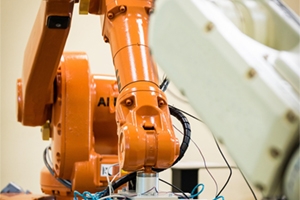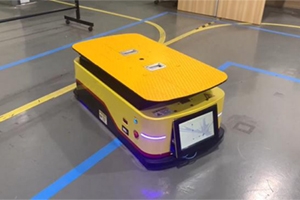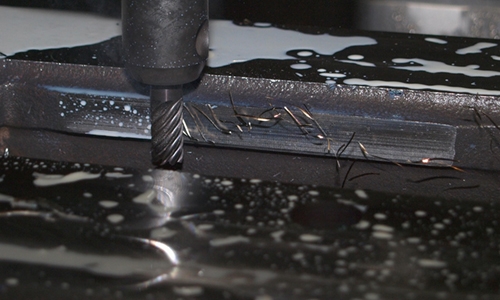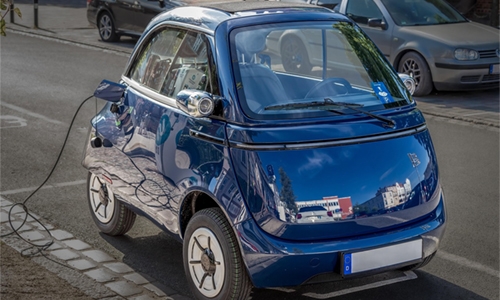Brushless DC (BLDC) motors have revolutionized many industries with their reliability, energy efficiency, and precise control. Unlike traditional brushed DC motors, BLDC motors use permanent magnets and electronic controllers, eliminating brushes and commutators, which reduces wear and tear. This shift has made BLDC motors a preferred choice in many industrial applications. In this post, we'll explore what makes BLDC motors stand out, why they’re widely adopted in industrial applications, and how they’re reshaping the landscape of modern manufacturing, automation, and robotics.
Factory Automation
In factory automation, BLDC motors are integral to systems that require precision and continuous operation. These motors are widely used in:

- Conveyor Systems: BLDC motors drive conveyor belts that transport materials or finished goods through assembly lines. Their high efficiency ensures reduced energy consumption while providing the reliable, continuous motion needed for smooth operation.
- Robotic Arms: BLDC motors power robotic arms used in manufacturing processes such as assembly, welding, and painting. Their precise control and high torque capabilities allow robots to perform repetitive tasks with extreme accuracy and minimal maintenance.
BLDC motors help improve production rates and reduce downtime by offering consistent performance in 24/7 manufacturing environments.
Robotics
As industries continue to embrace automation, BLDC motors are increasingly used in robotics for their precision, durability, and efficiency. Some key applications include:

- Industrial Robots: BLDC electric motors provide the necessary torque and speed control for industrial robots, enabling them to perform complex tasks like picking, sorting, and packaging. Their lightweight and compact design make them perfect for robotic applications that require both power and agility.
- Automated Guided Vehicles (AGVs): In warehouses and factories, AGVs powered by BLDC motors can transport materials and products autonomously. BLDC motors provide the high efficiency and smooth motion required for navigating tight spaces and maintaining high operational efficiency.
The ability of BLDC motors to deliver high torque at low speeds and precise control makes them ideal for robotics in manufacturing, logistics, and other industries.
CNC Machines
In the manufacturing industry, Computer Numerical Control (CNC) machines require motors that can provide precise control over speed and positioning. BLDC motors are used in CNC systems for:

- Spindle Drives: BLDC motors are often used to power the spindles in CNC machines, where high torque and smooth operation are necessary for cutting, drilling, and milling tasks. Their efficiency helps maintain optimal cutting speeds while reducing heat generation.
- Positioning Systems: For positioning tools and workpieces accurately, BLDC motors provide the precision needed for tasks requiring high accuracy, such as engraving and precision drilling.
Thanks to their precision, high torque, and low maintenance, BLDC motors play a vital role in ensuring the smooth and efficient operation of CNC machines.
Electric Vehicles (EVs) and Automated Manufacturing
In the evolving landscape of electric vehicles (EVs) and automated manufacturing systems, BLDC motors have a key role to play. Some notable applications include:

- Automated Manufacturing Equipment: In automotive assembly lines, BLDC motors power robotic arms and conveyor systems that assemble parts, weld, and paint vehicles. The motors’ efficiency and precision are essential for maintaining high-speed production while ensuring accuracy and quality control.
- Electric Forklifts and AGVs: BLDC motors are also used in electric forklifts and automated guided vehicles (AGVs), allowing them to navigate warehouses and factories efficiently. These motors provide the high torque needed for lifting and transporting materials while maintaining energy efficiency.
The energy-efficient design of BLDC motors makes them ideal for use in electric vehicles and automated systems that require continuous, reliable operation.
Medical Equipment
In the medical field, where precision and reliability are critical, BLDC motors are widely used in various devices. Some applications include:

- Surgical Robots: BLDC motors power the joints and actuators of surgical robots, providing smooth and precise movements for delicate procedures. The motors’ high torque at low speeds ensures fine control while maintaining patient safety.
- Infusion Pumps: In medical infusion pumps, BLDC motors are used to regulate fluid flow precisely. The low maintenance and reliable performance of these motors are crucial in ensuring the accuracy and safety of medical treatments.
BLDC motors are helping to improve patient care by enhancing the performance, precision, and durability of medical equipment.
Why Industries Choose BLDC Motors
- Cost Efficiency and Lower Operating Costs: The high efficiency of BLDC motors helps industries reduce energy consumption, contributing to significant cost savings. In addition, their low maintenance needs reduce downtime and repair costs, leading to overall lower operating expenses.
- Increased Durability and Reliability: The brushless design of BLDC motors results in longer operational lifespans and greater reliability. This is particularly important in industrial settings, where downtime can be costly, and machinery needs to run continuously for extended periods.
- Precision and Control: Industries require motors that can deliver high precision in various applications. BLDC motors provide smooth, accurate control, making them ideal for tasks that demand high levels of detail and exact movements.
- Adaptability to Future Technologies: As industries embrace automation, smart manufacturing, and IoT-based systems, BLDC motors are designed to integrate seamlessly into these evolving technologies. Their adaptability makes them a key component in future-proofing industrial operations.
Conclusion
BLDC motors are indispensable in the industrial sector, offering high efficiency, precision control, reliability, and low maintenance. From factory automation and robotics to HVAC systems and medical devices, BLDC motors are driving technological advancements and improving the performance of industrial machinery. As industries continue to evolve and embrace automation, BLDC motors will remain at the forefront of powering the machines and systems that keep the industrial world running.
